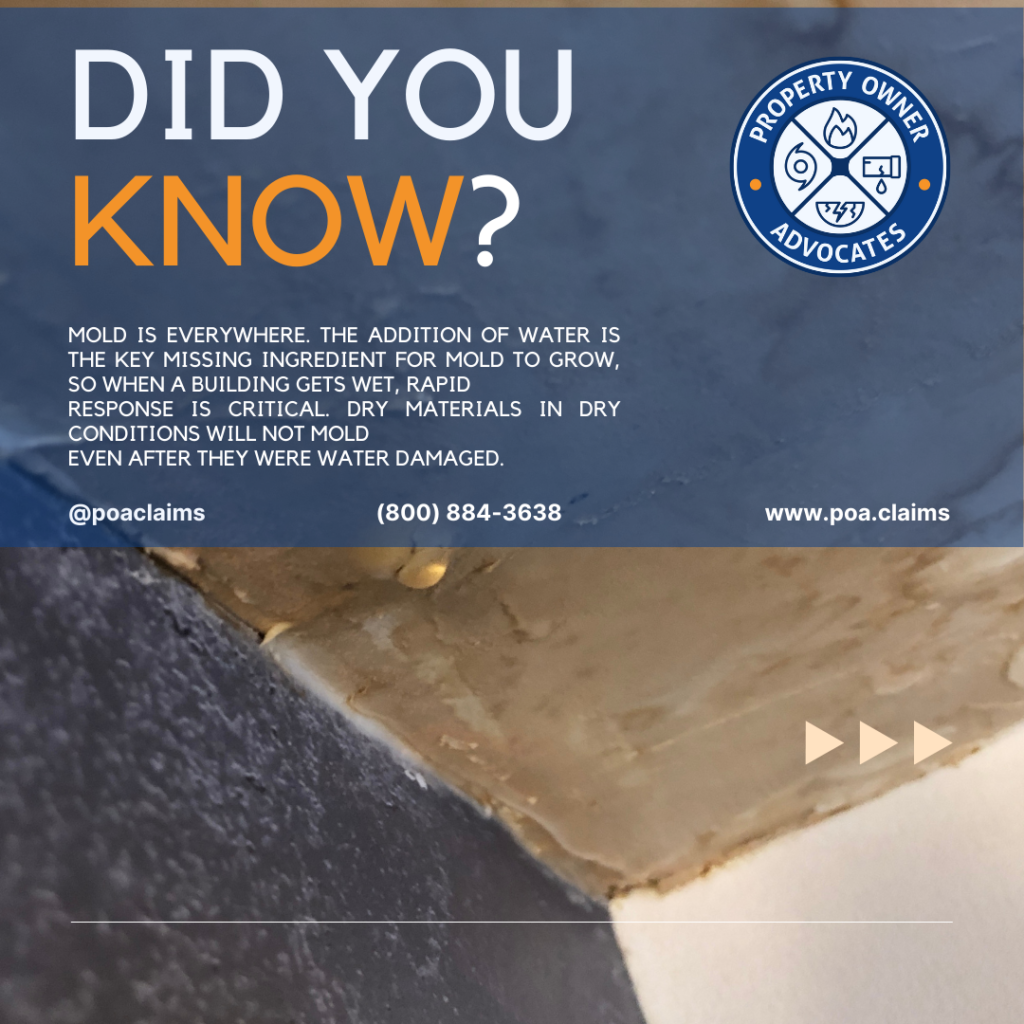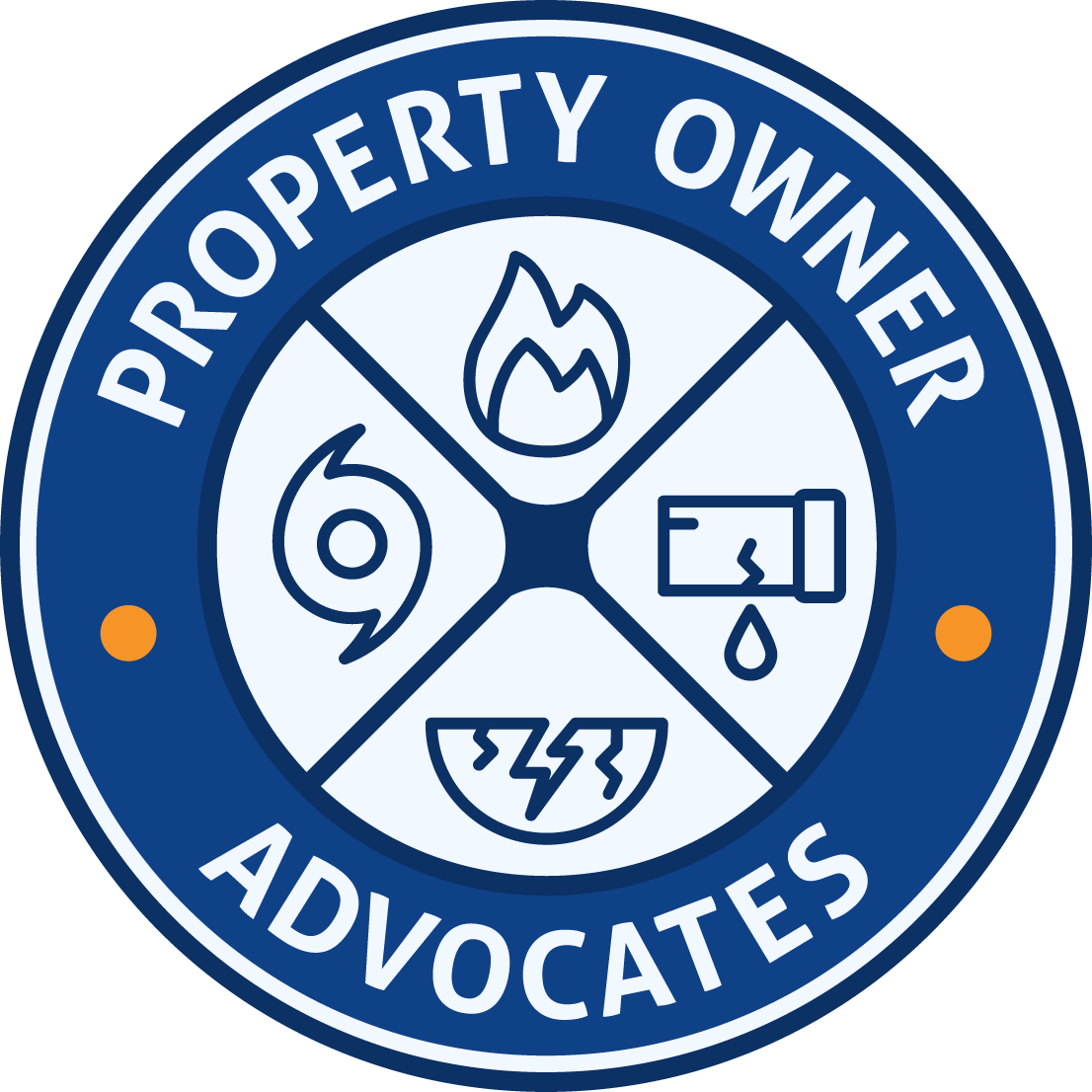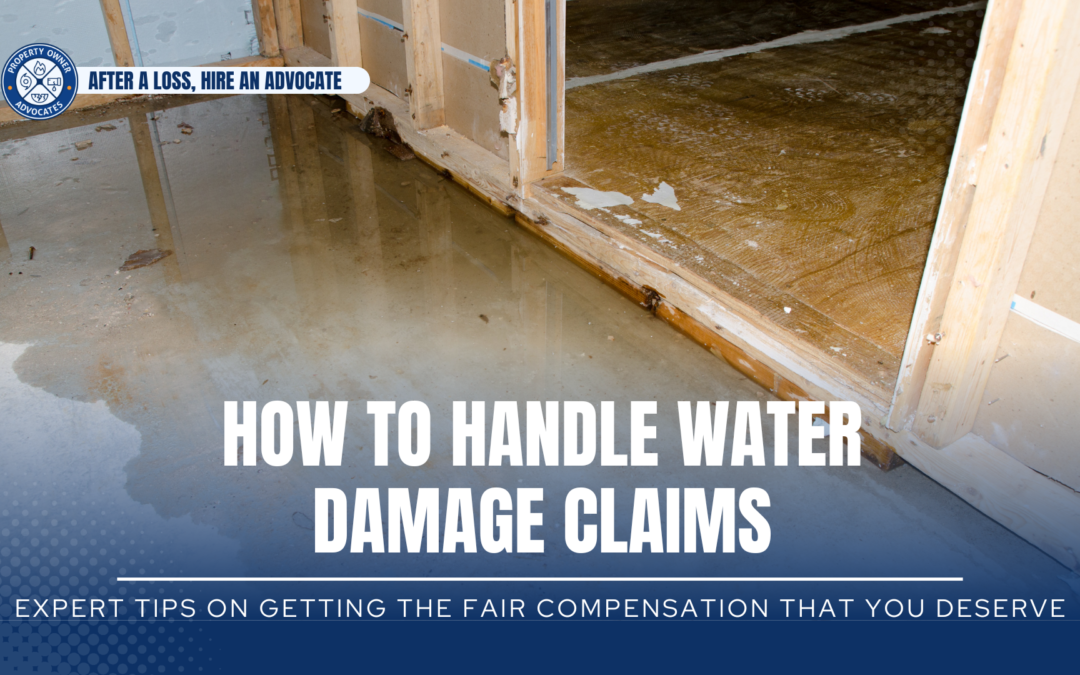After an appliance leak or pipe burst, water damage can quickly result. Water can cause devastating damages to contents and the structure itself. If left untreated, mold can quickly start to develop and spread, making your property contaminated. After a loss, you need to let your insurance company know as soon as possible. In the following blog, we’re going to guide you through the key points you need to know in order to get the full, fair, and reasonable claim payment you deserve.
File Your Claim Quickly
The first thing you’ll want to do when you notice any water damage in your home is to notify your insurance company. If the water damage was due to flooding, you’ll need to file a claim with your flood insurance provider.
Move Undamaged Possessions From Harm’s Way
After filing a claim, you’ll want to move any of your undamaged possessions out of harm’s way.
Document Everything
After the water damage claim has been filed, you’ll want to document all the damages by taking photos and videos. This means you must document the standing water, if any, and every single item that was damaged by the water. You should also prepare a personal contents list, which is just a document listing all your possessions, when you bought them, how much you bought them for and any pictures of the items if you have them.
You should also keep all of your water-damaged possessions until your insurance adjuster has had a chance to thoroughly examine them and make an assessment as to how much money you’ll get to repair or replace your items. The chances are that items near the water damage may need to be repaired or replaced even with slight water damage.
How To Work With Insurance Claims Adjusters
Working with the insurance adjuster during, you may be operating at a disadvantage when it comes to insurance and construction knowledge. Most insurance adjusters want to do right by the property owner and make sure that they get the money they need to do the necessary repairs. At the end of the day, they are paid by the insurance company that hires them – and their job is to process claims as quickly as possible.
Sometimes, this can result in your claim payment being underpaid compared to what you are actually entitled to under your insurance policy. In addition, the insurance claims process can often move too quickly to uncover the true extent of water damage. This means you might not get the settlement you are entitled to—and you might not even be aware of it. Unseen water damage is also a concern to keep in mind. When your adjuster visits your property to document the damage using thermal imaging and other tools, they may address visible damage but stop before getting to where the water has reached deep inside walls and floors.
Here are a few questions you can ask your insurance adjuster during the early stages of your insurance claim.
Five Questions To Ask Your Insurance Adjuster
- When can I expect to receive an advance for my contents and structure loss? I need to start buying essential items and hire companies for cleaning and reconstruction.
- What is your estimate amount for my building loss?
- Can you provide a copy of my insurance policy and explain my coverage?
- Will you be the person to adjust my loss from beginning to end, or will others come next? If you are one of many insurance adjusters to come, when can I expect them to visit me?
- Who will help me prepare the claim for all my contents damaged in this loss?

Hire A Professional To Perform Dry-out Services
A water damage/restoration company may need to be called out in order to pump out any standing water and thoroughly dry any surfaces before moisture or mold begins to spread.
Water damage and restoration companies are not all created equal. Some, unfortunately, may try to take advantage of an emergency situation, where you need help quickly. Before signing any contracts or work orders, make sure you get an estimate and written proof the company is licensed and insured. Do your due diligence.
Meet With Several Contractors
While the claim is under review, you should start getting repair estimates. Remember, your insurance company won’t tell you who to use. It’s up to you to vet contractors, ensure they are properly licensed and insured, and compare their quotes against the settlement figure from your adjuster. Another advantage of meeting with multiple contractors is that if you think your adjuster’s estimate is too low, it may help to show that more than one professional agrees.
Does Home Insurance Policy Cover Water Damage?
In general, water damage is covered by home insurance if it is sudden or accidental. In other words, you couldn’t have predicted it was going to happen. Water damage is not covered when it’s the result of a lack of home maintenance/neglect or due to a flooding weather event (this is a separate type of insurance policy you may need to consider).
Water Damage Usually Covered by Home Insurance:
- Sudden, accidental plumbing or appliance leaks
- Frozen, burst pipes
- Leaking roof
- Ice dams
- Vandalism (remember the Wet Bandits in Home Alone?)
Water Damage Not Typically Covered By Home Insurance:
- Negligence
- Gradual damage
- Flood damage
- Sewage backup
- Earth movement

Remember, after a loss you do not need to face the complex insurance claim process alone. If you have any questions about how to file an insurance claim, how to negotiate your insurance claim, or just general claim questions please do not hesitate to reach out to us!

